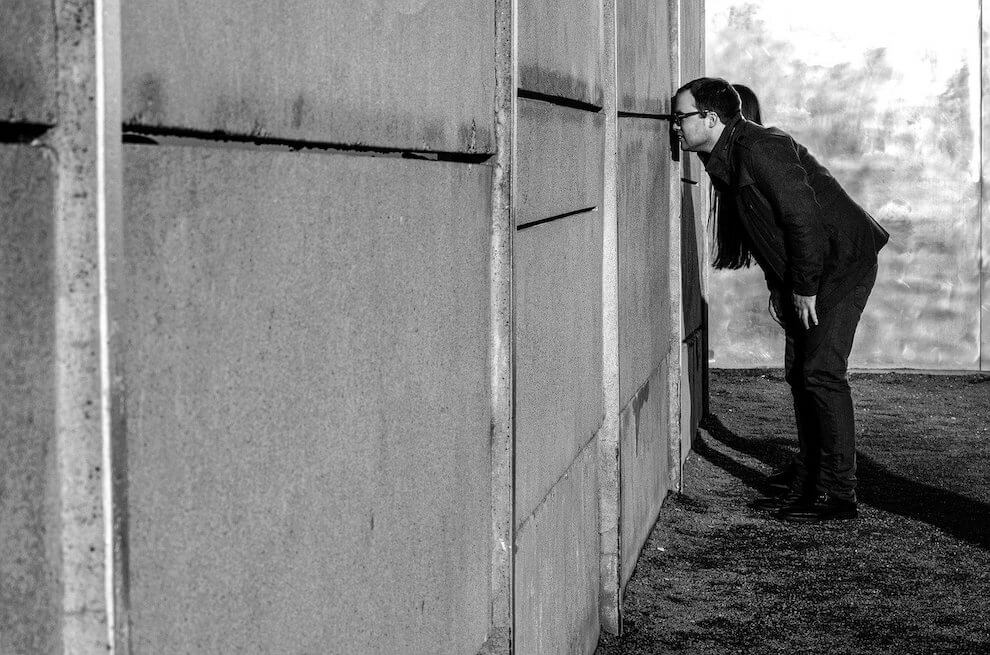The last world war has been and is until today, one of the greatest failures to humankind which caused the installation of the iron curtain. Yes the Allies won and the killing ended, but the scars that remained are still painful now after so many decades. Still, the joy and excitement of people when they finally heard that the war was over must have been a sight to see.
For many, that was a respite they relished. The freedom gained at the end was precious. For many more, it was only the beginning, as the suffering would go on in the darkness, behind the iron curtain. Cold and rigid as that image sounds in the minds of westerners, the iron curtain to the easterners felt like a lead blanket, trapping people underneath.
The soviet model behind the iron curtain
Vladimir Lenin, and by extension the USSR, felt the need to create this barrier between them and the rest of the world after the war ended. Fueled perhaps by the fact that they had been invaded twice in the last 30 years by Germany.
Thus a number of countries became satellite states for the USSR, governed by the socialist ideologies imposed. Socialism, in theory, wants to make all workers equal in profit and property, eliminating social classes. Communism would be the evolution from socialist ideologies.
As utopic as they sounded on paper, in practice, they proved to be utter failures. The countries taken under the wing of the USSR were Poland, Czechoslovakia, Hungary, Romania, Bulgaria, Albania, East Germany, and half of Berlin. None of them truly were in fact communist, since none of them achieved that theoretical status of equality.
The government kept all the property and power while corruption assured their stay in power. Instead, every country labeled as communist is actually a socialist one. Even the acronym for USSR stands for the Union of Soviet Socialist Republics, almost like all these terms just merged without any understanding behind them.
Looking only at the political aspects of socialist countries and their foreign policies during the Cold War exhibits only one angle of this period. By analyzing people’s lives in the harsh conditions under the Iron Curtain, we may see how they managed to cope.
A fractured country
Germany was in a weirder condition than some of the other countries. It was split into four occupation zones, though we may simply group it into two: the democratic West and the communist East.
In the west, England, France, and the USA each had an occupation zone and the USSR had one in the east. As though the country was not fractured enough, the capital, Berlin, now in the eastern part of Germany under the Russians, was also divided into two.
From 1948 to 1949, a 10-month blockade was set up by the Russians to cut all incoming supplies to West Berlin. Basically, Stalin was threatening to starve out the entire population of West Berlin, and the allies to the west could not break that blockade.
It would signal aggression and the start of a new war. Only by air could supplies be delivered. The amount of effort that had been undertaken to ensure West Berliners wouldn’t starve was astounding. It set the stage for how the Cold War was to be fought from that point on.
The iron curtain – under new management
All the satellite states had to undergo collectivization, 5-year plans, restrictions on movement, no freedom of expression, no free elections, and no division of power.
On top of that, the Russian language was mandatory in schools. Any interaction with the West was frowned upon to the point that many people became, later on, aware of secret police files created to investigate undesirables.
Privacy was thoroughly invaded, and the seeds of distrust had been sowed in the hearts of people living under the weight of the iron curtain.
Nuggets of differences
The degree to which those principles were implemented into each satellite state crystallized the lives of the people there. But certain nuggets of differences from one country to the next were evident.
A secret police force was created in every country. Germans had the Stasi, Czechoslovakia had the secret police, and Romania had the Security. It seemed like all of them wanted a different phrasing for the same institution used to break people’s privacy.
Bugging phones, intercepting letters, and attaching them to files that documented entire lives made the bulk of their “work”. They would use every mundane thing to claim misconduct, like:
- going shopping for groceries
- going to work
- dropping letters at the post
- meeting with friends at home
- talking with one’s significant other before going to bed
- recording phone conversations later to be transcribed for the file
The result?
A neatly organized file, brimming with the most boring thing one does every day. Everything was suspect, the paranoia so ingrained in the communists’ brains that it encapsulated their one and only personality trait: pettiness.
Mandatory atheism behind the iron curtain
Religion and its practice of it were heavily stifled out along with religious figures. Underground religious rituals were performed in the utmost secrecy. This practice was dangerous for both priests and the people attending. The government wanted to force people into atheism.
In the USSR, not complying with this conversion brought harassment, incarceration, and execution. Churches closed, and the buildings were taken apart. Basic human rights were crushed under the heel of communism.
Houses in urban areas in Romania were torn down to make room for apartment buildings to accommodate more people. The previous owners of said demolished houses had no say in the matter. The culture was put under a very thick magnifying glass of censorship. Movies, music, and literature had to glorify the socialist state.
Goulash Communism
Hungary opposed the harsh conditions into which they had found themselves in 1956 and revolted. Thousands of Hungarians died in the process. After six years, some concessions were made to improve the quality of life for Hungarians.
Several consumer and cultural products became available in Hungary. The citizens gained more freedom to travel abroad. Even the secret police loosened the leash of control they upheld. This reformation, of sorts, earned the name Goulash Communism to point out a slightly positive change.
A step too far
The regimes in the entire Eastern Bloc were oppressive. The corruption that infiltrated through the seams into everyday life pushed its citizens a step too far. The people rose up, demanding freedom almost in unison.
The Berlin Wall fell, the Iron Curtain had been lifted, and the socialist experiment had failed. Now, there are still countries under the same regime, albeit different enough to make the quality of life better.
There are still people in the former socialist countries in Europe who regret the fall of their respective totalitarian states. They cite the sense of community, the assurance of a job, and the house they could have if they became members of the party. But they altogether ignore human rights violations and corruption. In the end, the desire for freedom won out over oppression.



Leave a Comment